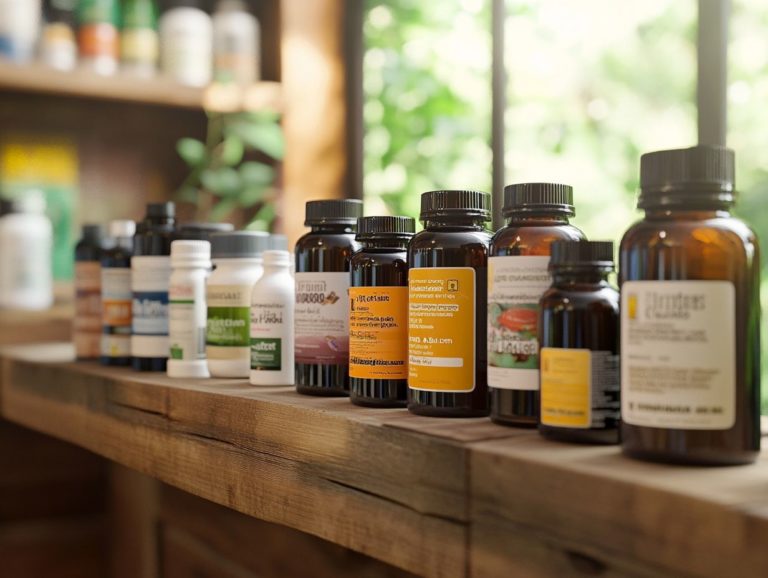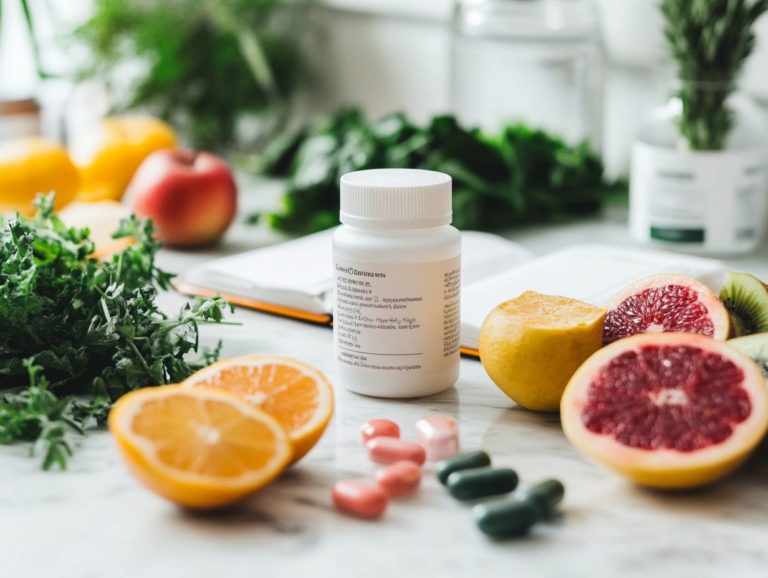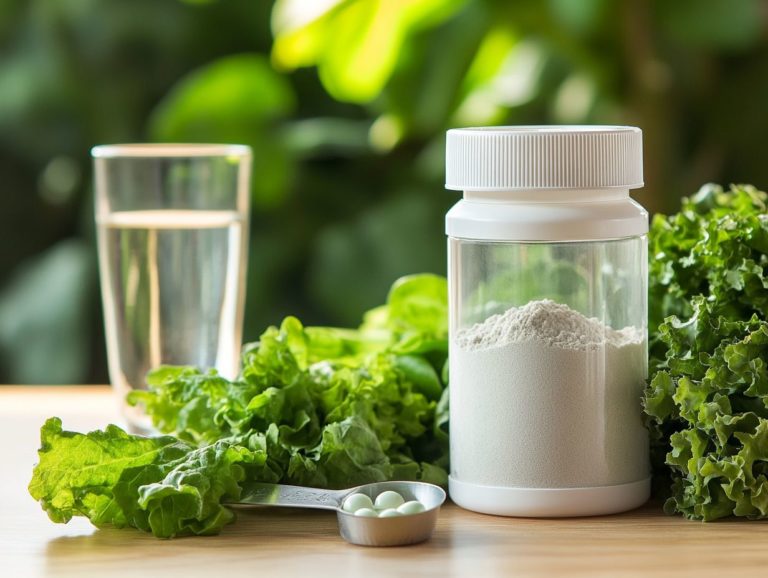Is Vegan Omega-3 Effective for Health?
Are you interested in the health benefits of Omega-3 fatty acids but committed to a plant-based diet?
This article delves into the realm of vegan Omega-3, exploring its natural sources and remarkable health benefits. Discover how these essential fatty acids can elevate your heart health and enhance brain function. We will compare them to traditional sources!
You ll find practical tips and enticing recipes to seamlessly incorporate vegan Omega-3 into your meals. Immerse yourself in this journey to learn how to nourish your body while remaining true to your lifestyle!
Contents
Key Takeaways:
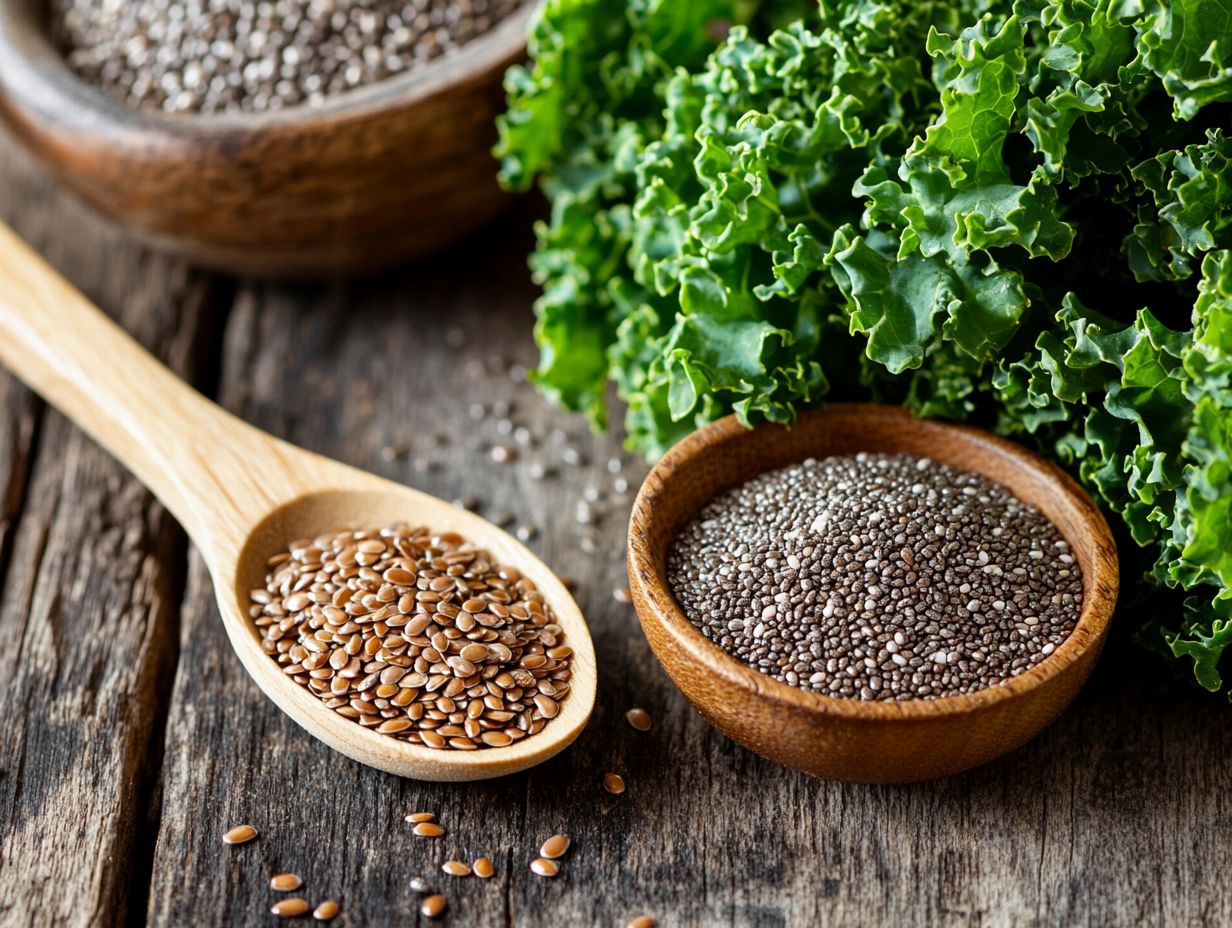
- Vegan Omega-3 is a plant-based source of essential fatty acids.
- These acids play a crucial role in heart and brain health.
- Plant-based options for Omega-3 include chia seeds, flaxseeds, and algae.
- These options provide a sustainable and cruelty-free alternative to fish oil.
- Incorporating vegan Omega-3 into a plant-based diet is easy with simple tips and recipes!
- This promotes overall health and well-being.
What is Vegan Omega-3?
Vegan Omega-3 encompasses Omega-3 fatty acids sourced from plants instead of marine sources. This makes it an essential component for anyone adhering to a plant-based diet.
Unlike fish oil, which contains EPA (eicosapentaenoic acid) and DHA (docosahexaenoic acid), vegan Omega-3 predominantly provides ALA (alpha-linolenic acid). ALA is a vital fatty acid important for many bodily functions, particularly related to heart and brain health.
As individuals strive to lower cholesterol and address cardiovascular concerns, it becomes increasingly essential to understand the importance of vegan Omega-3 sources.
Overview of Omega-3 Fatty Acids
Omega-3 fatty acids are essential fats that play a crucial role in your health. They impact everything from heart function to brain health and even help reduce inflammation.
There are three main types of Omega-3s: EPA, DHA, and ALA. Each has unique health benefits and dietary sources.
EPA and DHA are primarily found in fish, seafood, and certain algae. They are vital if you include animal products in your diet. On the other hand, ALA comes from plant sources like flaxseeds, chia seeds, walnuts, and hemp oil.
Not getting enough of these essential fats can lead to health challenges, including increased inflammation, impaired cognitive function, and a higher risk of cardiovascular diseases.
This highlights the importance of integrating vegan Omega-3 sources into your diet. Doing so allows you to elevate your Omega-3 levels without relying on animal products, fully supporting your overall health!
Sources of Vegan Omega-3
Vegan Omega-3 sources come from plant origins and serve as essential alternatives to traditional marine sources. They present accessible options for those committed to vegetarian and vegan lifestyles.
Incorporating seeds like flax and chia, along with nuts such as walnuts and hemp seeds, enables you to achieve adequate levels of ALA. ALA is crucial for overall health, particularly for supporting cardiovascular wellness.
Plant-based Options for Omega-3
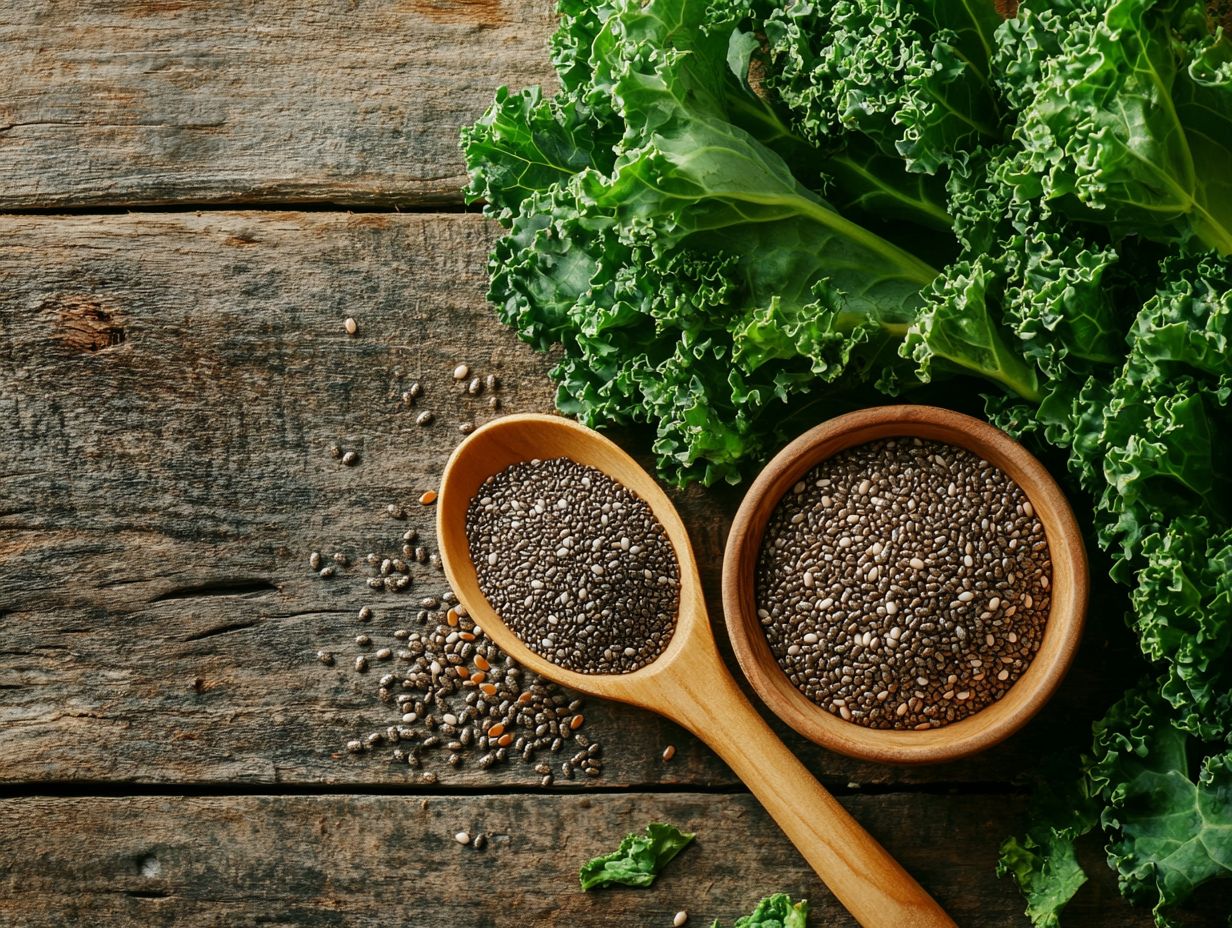
If you re looking for plant-based sources of Omega-3, you ll find a treasure trove of nutrient-rich options! These include flaxseeds, chia seeds, walnuts, and hemp seeds each contributing significantly to your ALA intake.
Flaxseeds are impressive, offering around 6,388 milligrams of ALA per tablespoon. By incorporating ground flaxseeds into your smoothies or oatmeal, you elevate both the texture and nutritional profile of your meals!
Chia seeds provide about 5,055 milligrams of ALA per ounce. They are versatile and blend easily into puddings, salads, or yogurt, adding a delightful crunch to your creations!
Walnuts are a hearty addition to your dishes, delivering approximately 2,570 milligrams of ALA per ounce. They re perfect for snacking or enhancing the flavor of your baked goods!
Hemp seeds are another fantastic option, offering about 6,000 milligrams of ALA per three tablespoons. Sprinkle them onto salads, mix them into smoothies, or use them as a topping to elevate a variety of meals!
Start including these plant-based sources of Omega-3 in your diet today! Don t miss out on these incredible benefits!
Discover more about vegan nutrition on our website!
Health Benefits of Vegan Omega-3
Vegan omega-3 fatty acids offer an impressive array of health benefits. They are especially known for supporting heart health and reducing risks associated with cardiovascular disease.
By incorporating vegan omega-3 into your routine, you can lower inflammatory markers, enhance insulin sensitivity, and boost your overall well-being. This makes it a critical part of a balanced, plant-based diet.
Effects on Heart Health
The impact of vegan omega-3 on heart health is remarkable. These essential fatty acids can significantly lower cholesterol levels, reduce inflammation, and decrease your overall risk of cardiovascular disease.
Sourced primarily from algae and certain seeds like flaxseed and chia, these compounds promote a favorable lipid profile while reducing inflammation. They play a crucial role in maintaining the health of your blood vessels, ensuring optimal blood flow and pressure regulation.
Through these mechanisms, vegan omega-3 helps lower LDL cholesterol and supports the production of beneficial HDL cholesterol. This offers a comprehensive approach to cardiovascular wellness. Their ability to modulate inflammation can lead to a reduced risk of heart-related complications. This highlights the increasing recognition of plant-based sources in effective strategies for heart health.
Impact on Brain Function
Vegan omega-3 fatty acids are vital for supporting brain function. DHA, or docosahexaenoic acid, is essential for cognitive health and development during critical life stages, such as pregnancy and menopause.
Found abundantly in certain algae, this important nutrient enhances memory and learning abilities. It is particularly crucial for expectant mothers, as it plays a significant role in fetal brain development.
During menopause, hormonal fluctuations can affect mental clarity and mood. DHA’s protective properties become even more significant at this stage.
Incorporating sources rich in this essential fatty acid into your diet whether through supplements or fortified foods can bring fantastic benefits.
Omega-3 significantly impacts neuroprotection and synaptic plasticity, underscoring its unparalleled value in promoting long-term brain health throughout various stages of life.
Comparing Vegan Omega-3 to Other Sources
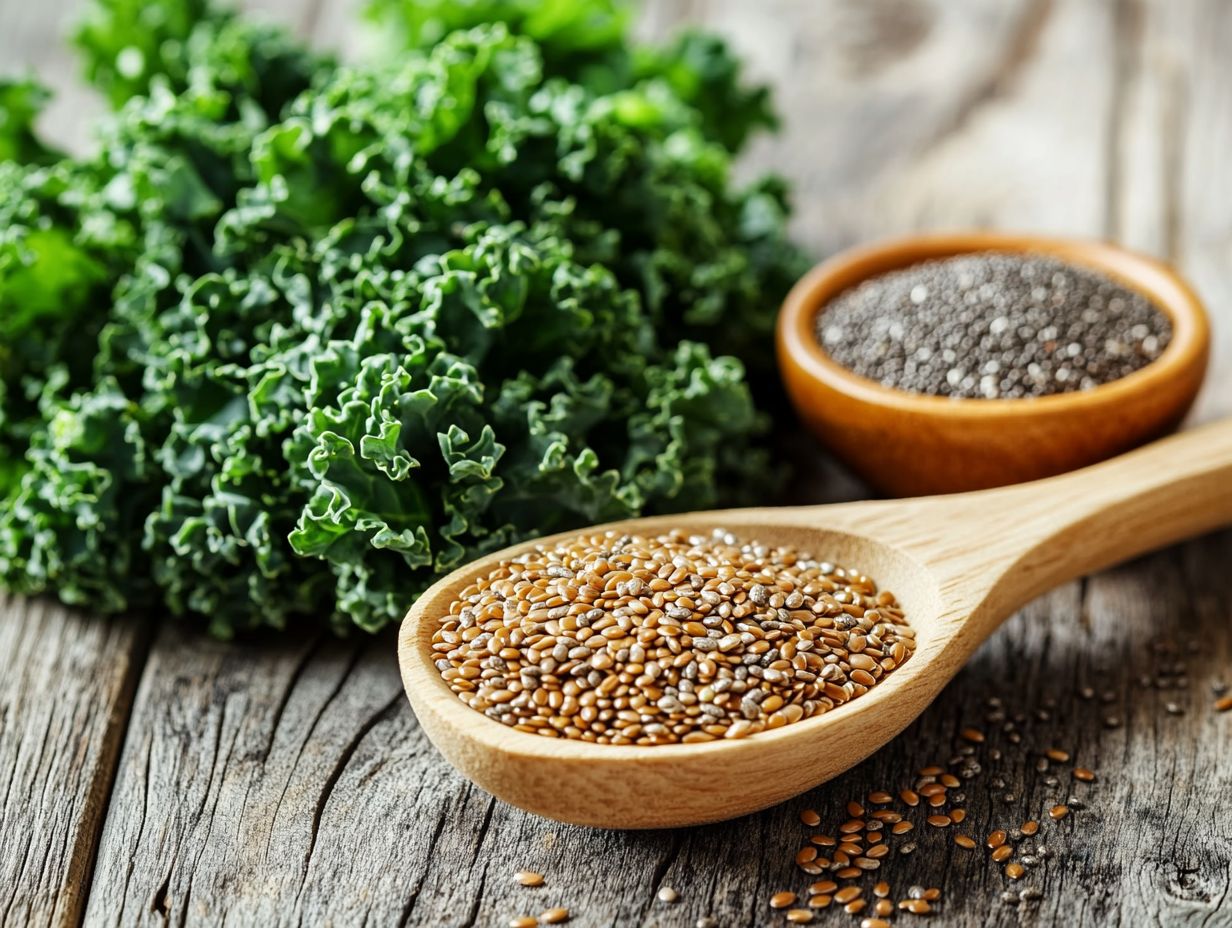
When comparing vegan omega-3 to omega-3 derived from marine sources, it’s crucial to assess the effectiveness and nutrient profile of these fats.
Consider the different contributions of three types of omega-3: EPA (eicosapentaenoic acid), DHA, and ALA (alpha-linolenic acid). Each plays a unique role in supporting your well-being.
Effectiveness and Nutrient Profile
The effectiveness of vegan omega-3 compared to marine sources depends on the nutrient profile, particularly the levels of EPA, DHA, and ALA each source provides.
Marine omega-3, primarily derived from fatty fish such as salmon and mackerel, is rich in EPA and DHA. Both are essential for cardiovascular health and cognitive function.
In contrast, plant-based omega-3 mainly supplies ALA, which your body converts into EPA and DHA. Unfortunately, this conversion process can be quite inefficient.
Research shows that the conversion rate can vary greatly from person to person. While vegan options like flaxseeds and chia seeds provide valuable nutrients, their bioavailability may not reach the levels of fish oil sources.
For those following a vegan diet, understanding this distinction is crucial for maximizing health benefits.
Incorporating Vegan Omega-3 into a Plant-based Diet
Incorporating vegan omega-3 into your plant-based diet is not only straightforward but also enjoyable. With a plethora of options available, you can savor foods rich in ALA and choose supplements that provide the essential omega-3s your body needs for optimal health.
Don’t miss out on these amazing benefits! Try adding flaxseeds to your smoothies or choose a quality omega-3 supplement today!
Tips and Recipes for Adding Omega-3 to Meals
Boost your meals with omega-3! Incorporate versatile ingredients like flaxseeds, chia seeds, walnuts, or hemp seeds into your recipes.
These ingredients are rich in omega-3 and add a delightful crunch or creamy texture, enhancing your everyday dishes.
For a wholesome start to your day, sprinkle ground flaxseeds on oatmeal or mix chia seeds into smoothies.
Toss walnuts into a salad or blend hemp seeds into dressings. Both add flavor and nutrition without overpowering your palate.
With these simple adjustments, you can transform ordinary meals into omega-3 powerhouses. Enjoy better health while making mealtime enjoyable.
Frequently Asked Questions
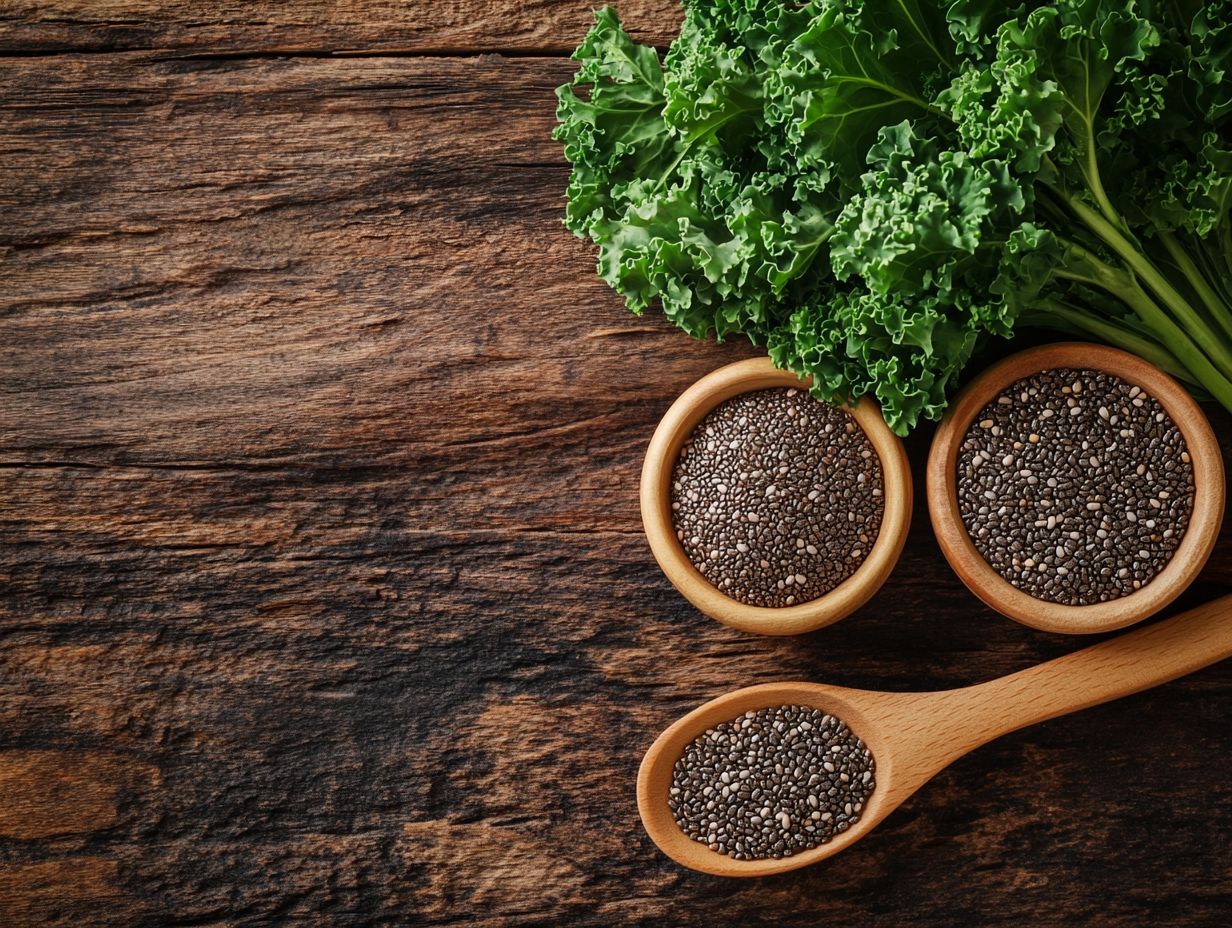
Is Vegan Omega-3 Effective for Health?
Yes, Vegan Omega-3 is an effective source of omega-3 fatty acids, which are essential for overall health. It provides the recommended amounts of EPA and DHA, crucial for optimal heart, brain, and joint functioning.
What are the benefits of Vegan Omega-3 for health?
Vegan Omega-3 offers many health benefits. It can reduce inflammation, improve heart health, promote brain function, aid in weight loss, and support eye health.
Is Vegan Omega-3 safe for everyone?
Vegan Omega-3 is safe for most people, including pregnant and lactating women, as well as children. However, consult your doctor if you have specific health conditions before taking any new supplement.
What foods or supplements contain Vegan Omega-3?
Vegan Omega-3 is found in plant-based sources such as flaxseeds, chia seeds, hemp seeds, seaweed, and algae. Vegan omega-3 supplements are also available in the market.
Can Vegan Omega-3 supplements be taken with other medications?
Always consult your doctor before taking any new supplement, especially if you are on medications. They can advise you about potential interactions between Vegan Omega-3 and your medication.
What is the recommended daily intake of Vegan Omega-3?
The recommended intake of Vegan Omega-3 varies by age and health needs. Generally, aim for 250-500 mg of EPA and DHA combined per day. Consult a healthcare professional for personalized dosage recommendations.


